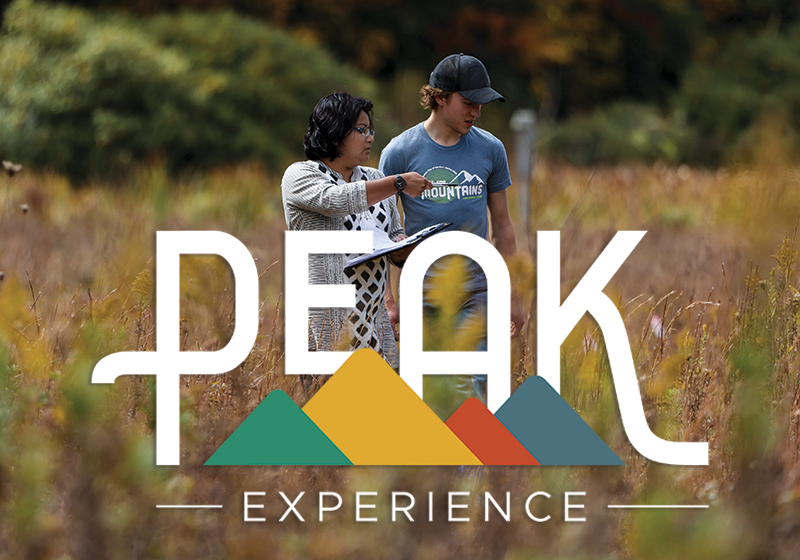
“The Black Experience in the High Country and at Lees-McRae” panel discusses the importance of embracing each other’s differences
“It is very important for us to see color because that’s what makes being a human so awesome,” said Nicholas Byers at “The Black Experience in the High-Country and at Lees-McRae” discussion panel on Feb. 25.
Chief Diversity Officer, Charles Gibson arranged the panel to highlight the unique experiences of three African American community members from the High-Country or Lees-McRae. Byers is a graduate of Appalachian State and was born in the historically Black Junaluska Community in Boone, North Carolina. Lepreece Lynch graduated from Lees-McRae in 2018 and is from Winston-Salem, North Carolina. Cameron Williams is a current junior at Lees-McRae from High Point, North Carolina.
All three individuals approached the panel discussion with openness and transparency. Each of the speakers had different experiences in the area and different perspectives on racial dynamics, but one commonality they all shared was the value of the community-based environment in the High-Country.
“The school community played a big part in me staying there,” Byers said, sharing that he had contemplated staying at Appalachian State for only one year, but was able to lean on the community at his school to help him along the way.
When asked how their upbringing helped shape them as people, each panelist reflected on their younger years and how much family meant to them. The phrase “it takes a village” was used multiple times to describe the communal process of being raised in a close-knit environment. Williams stated that her parents never boxed her in and always allowed her to be her true self in every aspect of her life. This allowed her to find a home away from home at Lees-McRae where she is studying Wildlife Biology with a concentration in Wildlife Rehabilitation.
After briefly discussing everyone’s upbringing, Gibson shifted the conversation to specific examples of adjustments they had to make while attending college. In response, all three panelists brought up the challenge of hair maintenance. For African American students, the process of getting a haircut or a hair appointment in Boone or Banner Elk is harder than in larger cities or in areas with a higher proportion of African Americans. Lynch attended a predominantly Black school before coming to Lees-McRae, and said the differences were stark.
“Besides the basketball team, I didn’t see too many people who looked like me,” said Lynch. “I had to be comfortable being uncomfortable.”
Byers had to completely adjust to professors and students automatically assuming he was an athlete due to the color of his skin.
“I would have professors assume that just because I am 6’4 and Black at Appalachian State that I was there on a sports scholarship,” Byers said. “They would automatically label me as just a person that is at college to bring the school a lot of money. Before they asked for my name, they would ask what sport I play.”
Byers also had to correct his professor for mistakenly assuming there were no Black people in the city of Boone. “To this day, you can trace Black people back to the early 1900s. I come from the Hagler lineage,” he stated at the panel.
Every person on the panel had different experiences, but each could relate to one another in some ways. Cheers and claps from the crowd after certain statements were proof that this panel had substance to all in attendance.
The Lees-McRae Office of Inclusive Excellence hosts events like “The Black Experience in the High Country and at Lees-McRae” to encourage conversations that can help people identify their differences and understand those who are different from them. They can also spur much-needed change in the community.
The panelists explained that African Americans experience things from an early age that people of other races will never have to go through. Byers, Lynch, and Williams could all relate to examples of times either they or a family member was ridiculed or disrespected because of the color of their skin. Byers challenged the audience members who live locally to listen more closely to those of diverse backgrounds, rather than make assumptions about them, and identify ways to make the community more welcoming to everyone.
“It is now the responsibility of those that benefit most from the system that was created for them to make it more inclusive,” Byers said.
Williams, Lynch, and Byers are just a few individuals who can relate to being in uncomfortable areas as a minority. Their powerful stories show that there is hope for an even more inclusive environment in the High-Country and at Lees-McRae.


